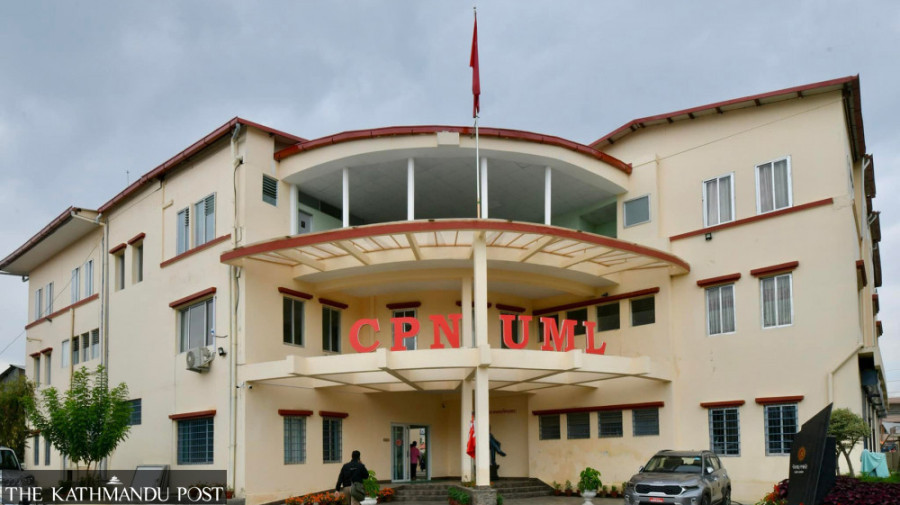Editorial
Dissent in UML
KP Oli as the party’s custodian should be promoting healthy debates and discussions.
CPN-UML Chair and current Prime Minister KP Sharma Oli is instinctively combative against anyone he sees as even remotely challenging his authority. Using his unmatched flair for Nepali idioms, he is a past master at verbally taking down the credibility of his political opponents. The good news for him is that after the exit from the UML of senior leaders like Madhav Kumar Nepal and Jhalanath Khanal in early 2021, Oli has near complete control over the party machinery. Yet the insecurity over the possible emergence of rival leaders apparently continues to gnaw at the septuagenarian leader. The much-discussed reentry of ex-Nepali President Bidya Devi Bhandari into the UML fold may have given Oli many sleepless nights. Bhandari is not his only headache. Speaking at a party meeting on Sunday, Oli warned the UML rank and file that no kind of factionalism would be tolerated in the party. He added, for good measure, that even though such diktats had been issued in the past, this time he was dead serious. But then the chairperson is himself being accused of promoting factionalism.
For instance, Bishnu Paudel, a trusted lieutenant of Oli, was made the finance minister on top of his responsibility of monitoring the party’s organisational activities. But Prithivi Subba Gurung, the new minister of information and communication, who has often had testy ties with Oli, is now without any responsibility in the party. (Earlier, he used to lead the UML’s parliamentary affairs department.) The ‘burden’ of dual responsibilities is apparently fine for a leader close to the party chair, someone more distant cannot be similarly overburdened. While Oli spoke on Sunday, he was also hinting at the undesirability of other possible factions in his party. There seems to be great tussle between Pokharel and Paudel, two Oli stalwarts, for influence. Most recently, this was seen during the appointment of the chief minister of Lumbini Province, with Chet Nath Acharya (who is close to Pokharel) and Leela Giri (close to Paudel) duelling it out for the top job, with Acharya eventually coming out on top. This tussle seems to have displeased Oli, perhaps because it suggests even his close acolytes might not be under his total control.
A degree of competition is not just desirable but healthy for political parties. Yet Oli is having none of it. He warned his party that the promotion of factional politics in the name of internal democracy is unacceptable. Factionalism and internal democracy are both anathema to Oli. Even while he may boast that he will run the party for another two decades, it is only natural for those in and outside the UML to think of his eventual successor as party chair. Only with the right kind of debate will the right candidate emerge. Trying to maintain complete control is one sure way to break the party, as Oli found out in 2021. It might have worked to his advantage back then, yet if something like that happens again, Oli’s political stature is sure to be diminished. Oli as the party’s custodian should be promoting healthy debates and discussions instead of trying to stifle dissent. As the undisputed leader of the UML, he has everything to gain by adopting this more democratic approach to governance.




 17.12°C Kathmandu
17.12°C Kathmandu













